Introduction

Pros: Linear yet punchy acceleration, loaded with electronics, agile handling
Cons: No adjustable suspension, engine lacks tractability
I really have a thing for Italian food. On most of my food outings, I often choose pizza, lasagna, and the likes I can’t even pronounce the names of. Heck! I am drooling already. But you see, I easily drift off the topic and touch upon food every time the context involves anything Italian. In this case, it’s the new Ducati Monster.
We had touched upon the history and significance of the Monster name for Ducati in our track ride review, which you can read here. It was in October last year that we had the opportunity to belt the new Monster down the mighty Buddh International Circuit and came back hugely impressed. However, a race track is not the only place where the bike will spend all of its life, is it? So, we take the new Monster out in the real world, on wide-open highways, through some twisties, and in the city. Will it be as impressive here as it was on the racetrack? Will I find it as delicious as pizzas and lasagne? Let’s find out.
Styling and Quality

Ever since the new Monster was unveiled, people have been ranting about the lack of butch and imposing visual presence of its predecessor. To some extent, I agree with them. However, you must get rid of the nostalgic drama and forget prior references to behold the Monster to appreciate the subtle visual treat that it is.

Although extremely compact, the Monster does pack in some muscle and aggression, especially around the fuel tank area with neat contours and side bulges. Then there’s a low-slung oval-shaped headlamp, a pointed tail section, and dual slash-cut exhausts, all of which make for a sight worth giving attention to. I was also impressed by the carbon-fibre finishing on fenders and side panels and the sequentially glowing LED turn indicators.

It’s a typical Ducati when it comes to quality, leaving almost no room for complaints. The only small niggle I noticed was uneven panel gaps in the plastic cladding around the fuel tank section. Barring that, the motorcycle only shouts quality and upmarket finish. May it be the flushness of paint, the sturdiness of panels, or the precision in welds, everything is top-notch. Even the buttons on the switchgear are tactile and easy to operate.
Ergonomics and Comfort

The ergonomics of the new Monster are welcoming and accessible. The bulging top of the fuel tank and the low seat give you the feeling of sitting on the bike. It delivers a great combination of comfort and commitment with mildly rear-set pegs and a single-piece handlebar. And when you’re in the mood to go full send, there’s enough space to shift back, crouch down, grip the fuel tank, all of which feels natural.

Although the seat height isn’t really low at 820mm, keeping both feet on the ground is never a problem, mainly due to the fuel tank tapering a lot towards the seat. This also means that the Monster feels as compact in the saddle as it looks, which might result in the large-sized individuals getting a sense of riding a bike much smaller. But that doesn’t mean it gets uncomfortable, not even over long distances.
Performance and Handling

Gone is the previous 821cc engine and it has made way for the new 937cc, Testastretta, L-twin, liquid-cooled mill that also does duty in other 950s like the Hypermotard and Multistrada. In the Monster, it churns out 111bhp of power and 93Nm of peak torque. Also, the long-running trellis frame has been replaced by the new aluminium monocoque chassis which is 37 per cent lighter. Other components to have shed weight are wheels, engine, and swingarm and the resultant drop in its kerb weight is as much as 18kg! So, how does this whole package come together out on the streets?

Beautifully! The new Monster shows a profound urgency from as low as 3,000rpm, retaining it up to 5,000rpm. And this is where the motorcycle spends most of its time, may it be in the city or on the highway. This is also where it feels enjoyable and eager, but manageable at the same time. Keep rolling the throttle, get past 5,000rpm, and it goes on to justify the ‘Monster’ tag with a ferocious acceleration almost until its red line. Do this in the first two gears and the front wheel keeps fighting the wheelie control to let go off the tarmac. It reaches the 100kmph mark in a jiffy and the progression to some ridiculous speeds is equally quick.

What’s truly likeable about the Monster is that it puts down power linearly and predictably while being incredibly quick. I would have liked it to be more tractable though. One can potter around at 50-60kmph of speeds in the fifth gear but with a noticeable shudder. And if you gas it aggressively below 3,000rpm in second or third gear, there’s an abrupt choppiness before the engine starts building up the momentum. Another issue is the heat from the engine. Spend about five minutes in traffic and an intensely discomforting heat starts dissipating on your right thigh.

The electronics of the Monster deserve a special mention as it intervenes progressively, without hampering the overall experience. For instance, you might not even notice the traction control saving slides around corners on aggressive acceleration. Ditto for the wheelie control. Despite keeping it at the highest level, it let the front wheel hop a wee bit before kicking in, thus enhancing the fun.
Even the six-speed gearbox of the bike is properly slick and almost free of false neutrals. The bi-direction quick shifter, in particular, is a true delight to operate. Except for a few rare instances when it threw tantrums in the fifth and sixth gears, the cogs shifted up and down with a slight touch, making it pretty engaging to operate.

In terms of handling, the Monster is obedient, communicative, and light. It tips into corners with ease, and holding on to the desired line isn’t a task either. Flick it from side to side or take on long sweeping corners, it feels equally composed and graceful. A lot of credit goes to the Pirelli Diablo Rosso III tyres which deliver excellent grip and feel. It’s only when you push the bike extremely hard around corners that the front feels a bit unsettled but not unnerving.

As for the ride quality, it’s truly impressive since the set-up delivers a great balance between sharp handling and a comfortable ride. The small-amplitude undulations are ironed out cleanly too. There’s a hint of firmness while going over tall speed breakers or through deep potholes, but it’s never back-breaking. On paper though, the setup looks pretty basic. That said, the rear monoshock gets preload adjustability only, while the inverted front forks offer none at all.

The braking performance is equally likeable. There’s a pair of 320mm discs at the front and a 245mm disc at the rear, both clutched by Brembo M4.32 callipers. The whole setup, especially the front, delivers a tremendous bite, no matter how hard you go on them. At times, however, I wished for better feedback, from the front and rear both.
Features and Tech

The new Monster is generously equipped to take care of the rider’s shenanigans and blunders. There are three levels of cornering ABS, eight levels of traction control, four levels of wheelie control, launch control, and a bi-directional quick shifter. You also get three riding modes — sport, touring, and urban and each one of them can be customised for different levels of electronic intervention and throttle response.

All the information is displayed on a Bluetooth-enabled 4.3-inch full-colour TFT instrument cluster which shows data crisply and legibly, even under direct sun. Even the data layout on the cluster is clean. For navigating through screens and tweaking different parameters, there are two separate buttons for toggling and selecting each, which is a time-consuming task. A single multi-function joystick would have made it all much easier.
Fuel Efficiency

The Monster returned a fuel efficiency of 18.1kmpl after riding it in different conditions which was a mix of dense traffic, open highways, and twisty roads. With a fuel tank of 14 litres, the riding range turns out to be around 253km.
Verdict

Now, do I like the Ducati Monster as much as pizzas and lasagne?
Absolutely! It's not just ballistic to satisfy an experienced rider, but also friendly enough to be suitable for a relatively new big bike rider, progressing from a 300-600cc machine. It has all the ingredients to be equally fun on public roads as well as around a race track. An occasional touring also seems doable. The engine performance is absolutely thrilling with brakes to match, the handling is light and agile, and the electronic aids work like a charm. However, I was left wishing for better tractability and heat management from the engine, which will make it better to commute, if one chooses to.

Ducati has priced the standard Monster at Rs 11.92 lakh and the Plus edition costs Rs 12.16 lakh (both prices are ex-showroom, India). The latter gets a small fly screen and a rear seat cowl. Now, for Rs 30,000 lesser, you can buy the Triumph Street Triple RS which seems a bit more value-for-money proposition. It makes slightly more power, has better tyres, and has a fully-adjustable suspension setup. However, the brashness and playfulness that the Monster offers would be difficult to match. Well, we can verify that only after a detailed comparison review of both bikes.
Photography by Kapil Angane
Gallery
1/113
Ducati Monster BS6 Rear View Mirror
Double Tap to Zoom











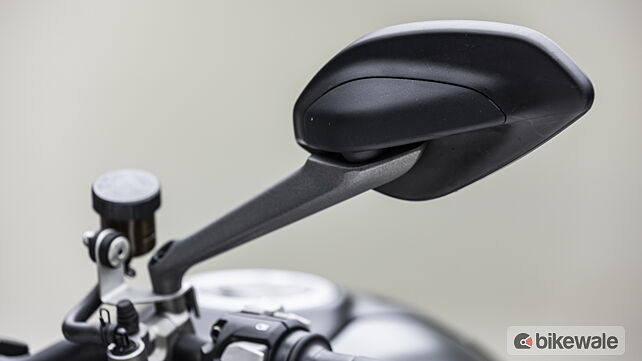












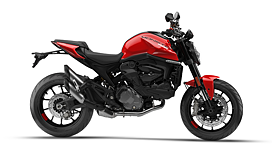


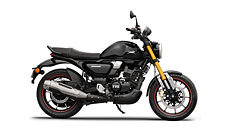
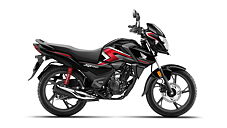
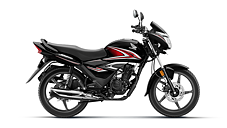

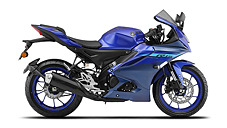
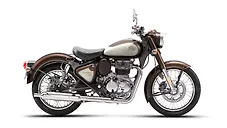
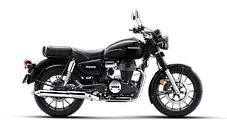
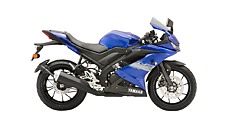
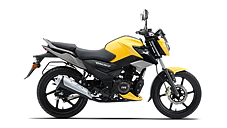
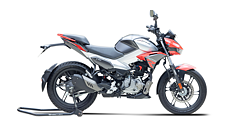
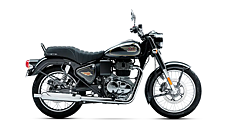
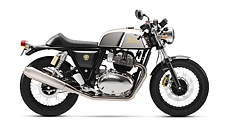
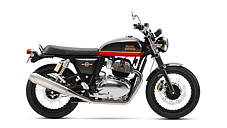
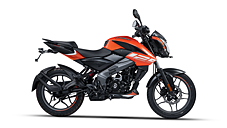

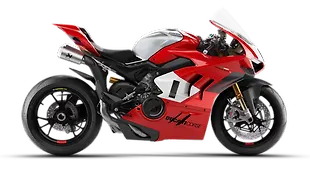
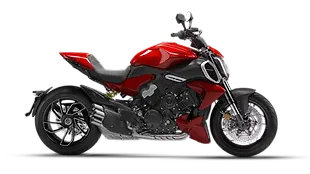




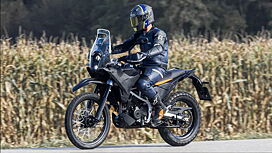
![KTM 390 Adventure X [2025] KTM 390 Adventure X [2025]](https://imgd.aeplcdn.com/272x153/n/cw/ec/190885/390-adventure-x-2025-right-side-view.jpeg?isig=0&q=80)